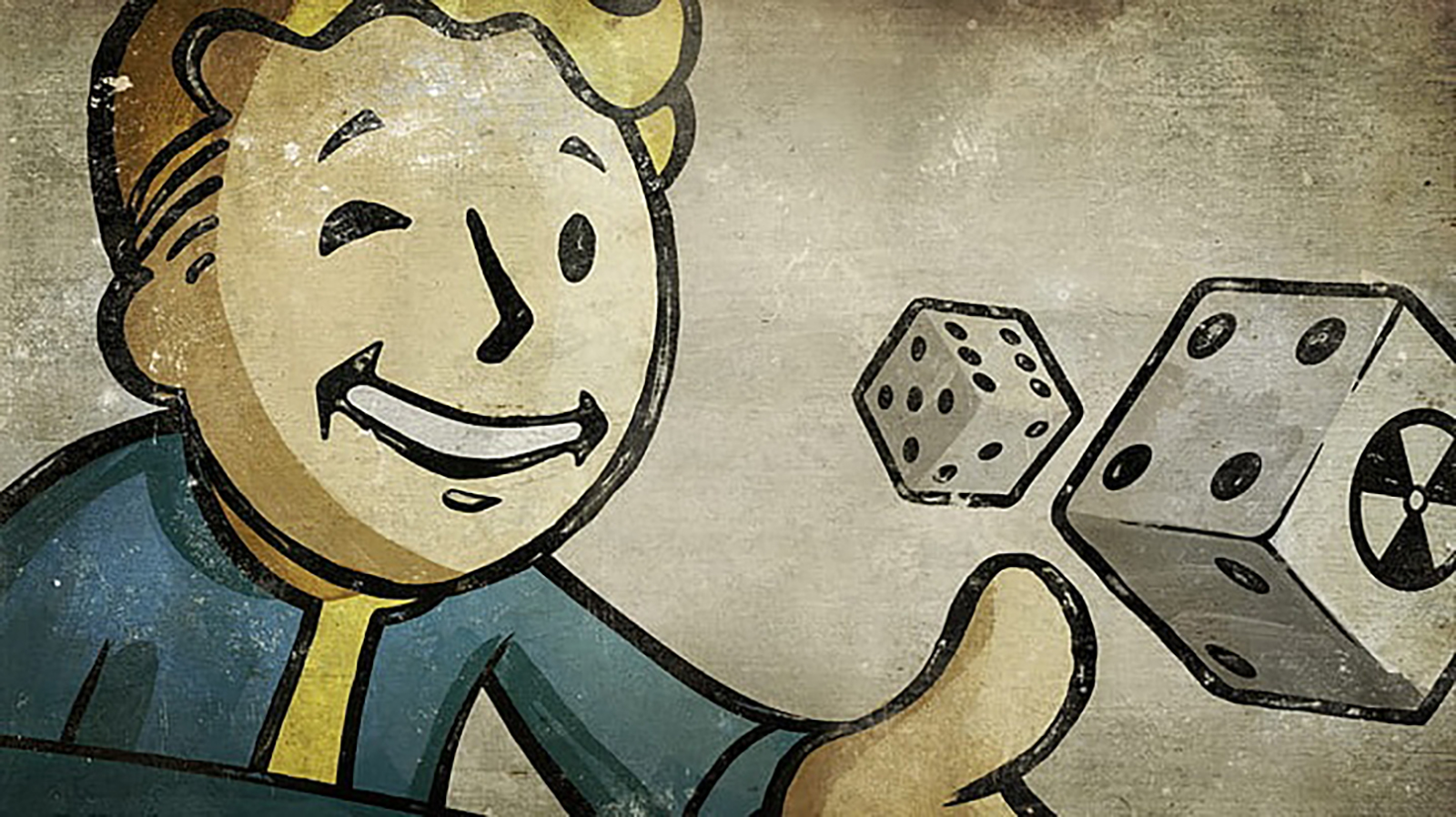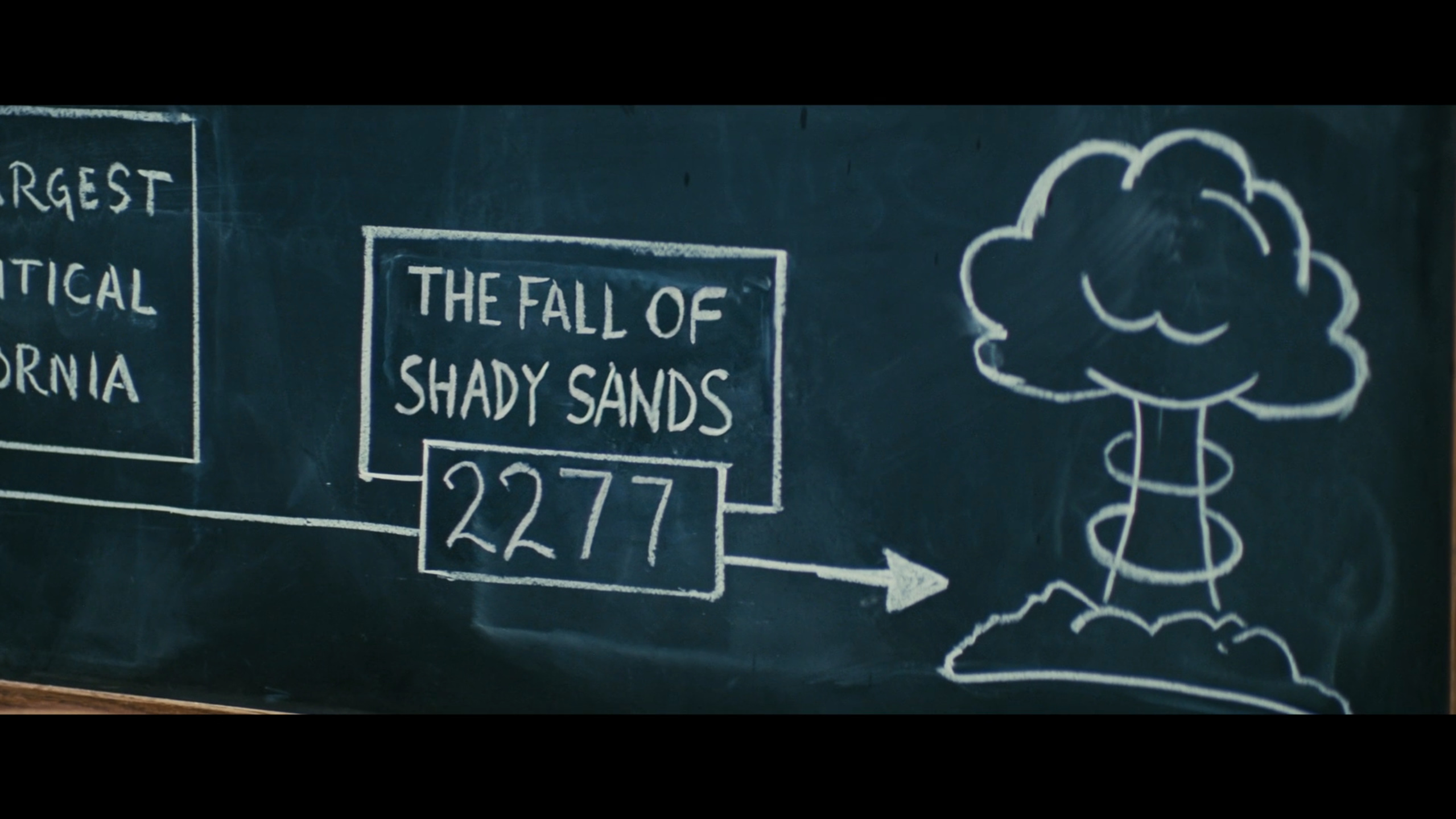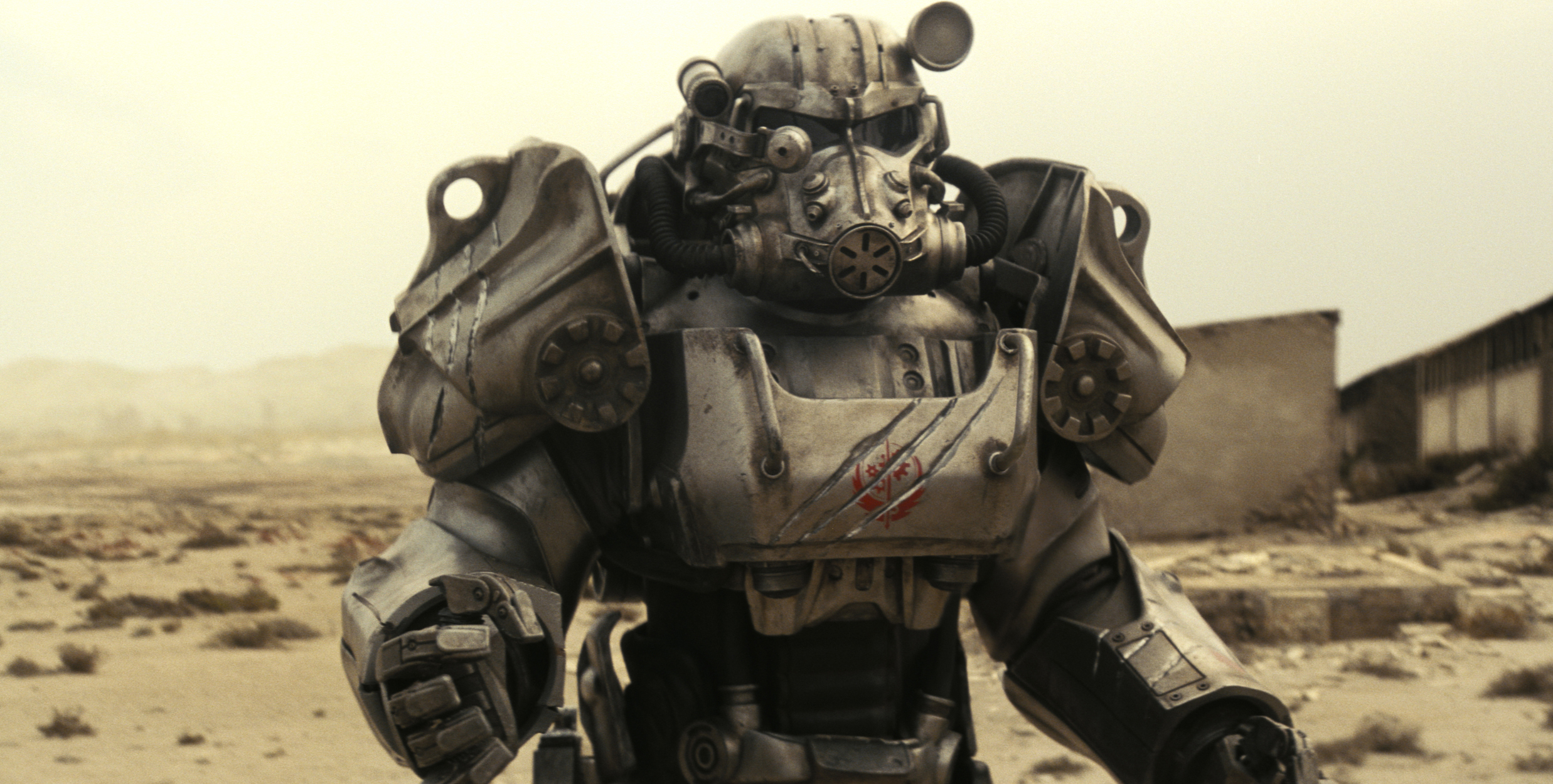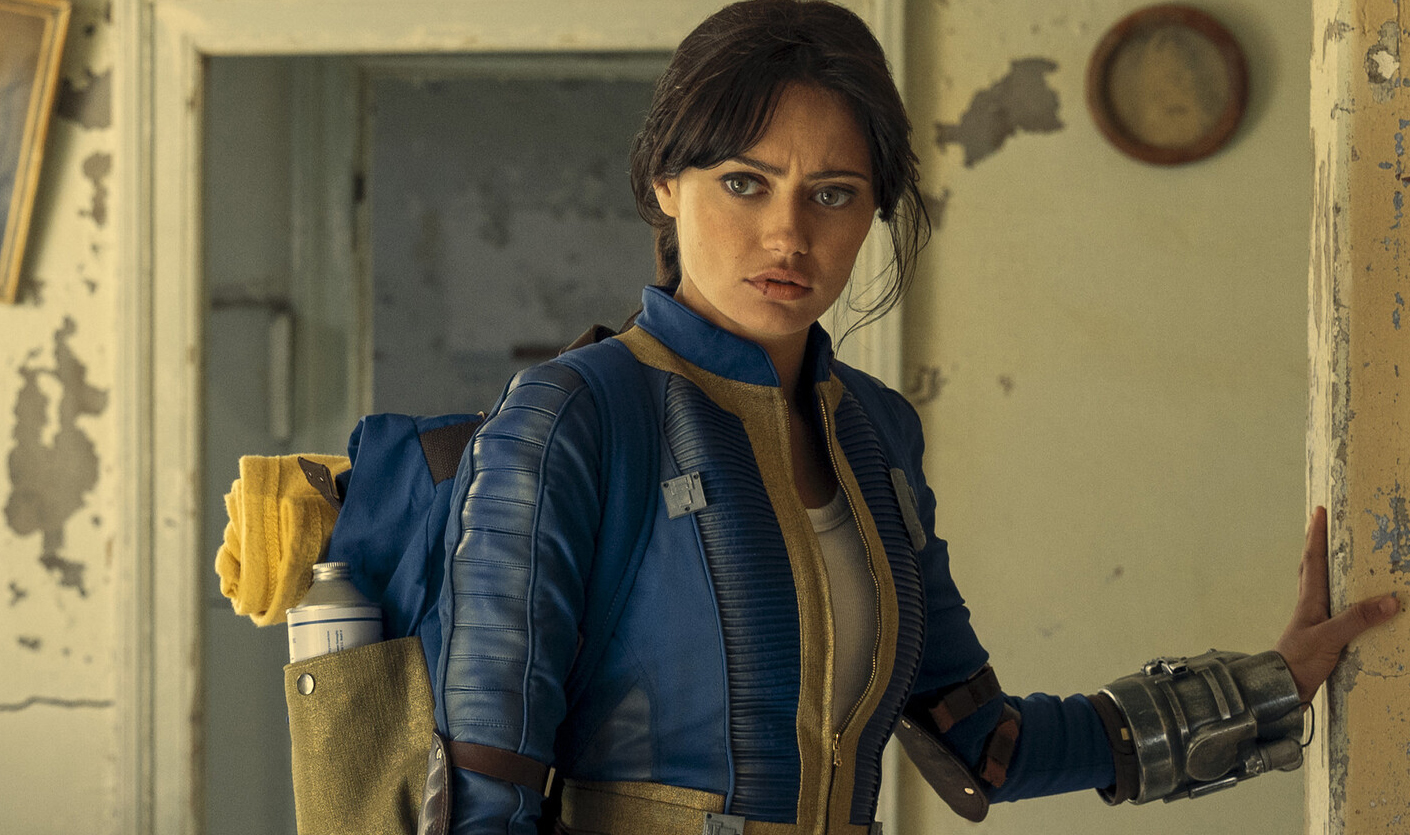
Prime TV's Fallout series is here, with all eight episodes ready to watch on your Radiation King television set. Ready for a surprise? The show is actually good! Jody described it as "the best Fallout since New Vegas" and while I personally thought the first half of season dragged a bit, it picked up in the final few episodes and was more fun once the characters started ignoring their main quests, just like we do in the games.
Less surprising is that some Fallout fans are seriously unhappy with the show. It's not due to the acting or humor or cinematography, but because of something Fallout has had issues with in the past: lore problems. Remember the kerfuffle over the Brotherhood of Steel being in Fallout 76 when the timeline didn't really make sense? It's like that, only worse.
This time, the hubbub involves a few dates on a chalkboard, the location of a well-established city, and the final scene of the series. I'm admittedly no Fallout historian, but I'm gonna do my best to untangle the issues below. Here's a big old huge spoiler warning for the Fallout TV series.
The timeline problem
In episode 5 of the Fallout show we learn that Shady Sands, the New California Republic's first capital city and home to over 30,000 people, was nuked at some point in the recent past (two of the main characters were kids when it happened, and are now young adults). Shady Sands, one of the first locations you visit in the original Fallout game, is now just a big ugly hole in the ground.
When was the nuke dropped on this important NCR stronghold? That's the issue. Well, that's one of the issues. In episode 6 when Lucy visits Vault 4, she sees a classroom blackboard conveniently laid out with a Shady Sands/NCR timeline: the foundation of Shady Sands, the NCR voting itself into existence, and then, tragically, "The Fall of Shady Sands."
At first glance, that blackboard appears to put a date on the nuke: 2277, which is a few years before the events of Fallout: New Vegas—yet the nuking of Shady Sands is never mentioned in that game and the NCR is highly active in New Vegas battling over the Mojave. So… does that mean Fallout: New Vegas, as a game, is being "retconned" out of official Fallout lore, as some fans suggest? How could the events of New Vegas play out as they did if the NCR had been nuked into oblivion a few years earlier?

Thing is, the blackboard doesn't actually say Shady Sands got nuked in 2277. The timeline arrow on the blackboard goes through "The Fall of Shady Sands" in 2277 and then points to the mushroom cloud, which could indicate whatever is considered "The Fall" happened before the city was bombed. "The Fall" could be some other event, because cities can fail for other reasons besides nukes. The NCR also had other cities, so wiping out Shady Sands wouldn't mean they were definitely finished, and there is an outpost shown later in the show that's full of NCR soldiers.
I still have a few questions, though. If Shady Sands had already collapsed, why did it need to be nuked? If "The Fall" and the nuking are separate events, why explain one and not the other? And why didn't the show's creators make this more clear by simply putting a goddamn date on the blackboard for the nuke itself. Literally everything else on the timeline is dated. Didn't they realize that being needlessly ambiguous would ruin my afternoon?
The ending problem

Then there's the ending of episode 8, where the last shot of the Fallout series shows us New Vegas in the distance, followed by a closing title sequence that depicts the once lively city as a darkened ruin: no blinking lights, no flashing signs, ruined vehicles in the streets and shattered gates at the walls. Taken with the nuking of Shady Sands, some fans think this suggests the rise of New Vegas may never even have happened in show lore, and that season 2 might completely overwrite New Vegas history.
But if that's true… why show Mr. House, eventual ruler of New Vegas, in a pre-war flashback on the show? Would the show's creators really obliterate the history of the most cherished game in the Fallout series? Does Todd Howard secretly hate New Vegas because it's the most cherished Fallout game in the series—and also the one modern Fallout game Bethesda didn't develop? This is one proposed explanation, believe it or not.
Personally, I think New Vegas, like Shady Sands, fell into war and chaos in the years after the game but before the show's events take place. I don't love seeing the city dark and dead, but it doesn't mean that Fallout: New Vegas never happened.
The location problem

We also learn that in the show that Shady Sands isn't way out in the desert as it appears in the original Fallout games, it's in downtown Los Angeles. This has led some to speculate that Fallout 1 and 2 are also being retconned out of existence. If Shady Sands is located in a much different place, then how could it still have been founded by the survivors of Vault 15? If not them, then who founded it? If the history of Shady Sands is being rewritten, then is the lore of the original Fallout games (again, the games not developed by Bethesda) being discarded along with it?
Can I take a moment for another deep sigh? Look, I don't know Todd Howard, but I find it hard to believe he glued a big mustache to his face and then twirled it diabolically while plotting with director Jonathan Nolan to remove Obsidian's and Interplay's RPGs from Fallout history. Are there issues with the timelines and locations? Yeah, big time. Does it mean the lore of three great games has been balled up and chucked in the bin? Not at all.
Just because there's two versions of events doesn't mean one is invalid.
The Fallout show is an adaptation, and something that happens in adaptations is stuff gets shuffled around, tweaked, compressed, streamlined, altered, and yes, removed. Why was Shady Sands relocated from the middle of nowhere to downtown LA? Probably so the characters didn't have to wander a hundred miles out into the desert to look at a hole in the ground and then walk a hundred miles back for the next scene.
In the Marvel comics, Thanos glove-snapped 50% of all life into ash because he had a crush on Death. In the movies he did it because he thought the universe was suffering from overpopulation. The comics depicting one version and the movies another can be jarring, but just because there's two versions of events doesn't mean one is invalid.
Maybe a better example: I'm listening to the Shōgun audiobook now, which is over 53 hours long as compared to the TV show, which is about 10. You know how Blackthorne met Toranaga at the end of episode one? I was almost 11 hours into the audiobook before that happened. Adaptations change stuff. They have to. And unlike the bombs falling in the Great War, it's not the end of the world.







